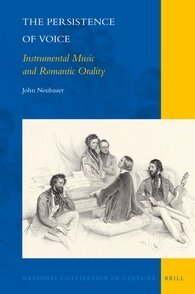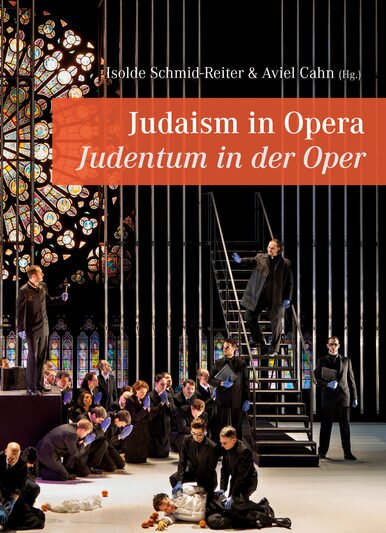Jewish Music
Thursday 16 November 2017 from 19h until 21h
Hof van Liere, Prinsstraat 13
2000 Antwerp
This evening program, on the theme of Jewish music, will feature two book presentations and two public lectures, interspersed with short musical pieces. The evening will conclude with a reception.
Free entrance.
Registration required: click here to register.
Book presentation: The Persistence of Voice: Instrumental Music and Romantic Orality (Brill Publishers, 2017)
With a presentation by Ursula Neubauer

John Neubauer (Budapest 1933 – Amsterdam 2015) was Professor of Comparative Literature at the University of Amsterdam. Among his works are The Emancipation of Music from Language (1986), The Fin-de-siècle Culture of Adolescence (1992) and the four-volume History of the Literary Cultures of East-Central Europe (4 vols., ed. w. M. Cornis-Pope, 2004-10).
Public lecture: The Hebrew Melodies by the Composer Isaac Nathan and Lord Byron as “poet laureate of the synagogue”
Dr. Sabine Lichtenstein (Universiteit van Amsterdam)
In 1814 a collection of songs – the Hebrew Melodies – appeared on the market. The collection was a great success, and subsequent editions and several German translations were made. However, many people were shocked at the first edition, as it consisted of “authentic”, old synagogual melodies. These had been collected by the musician Isaac Nathan, who added piano accompaniment as well as new “proto-Zionistic” texts by Lord Byron. Many famous composers had put the poems to their own music, but only one, the German Romantic composer Max Bruch, arranged one of the harmonized hymns, once with and once without the text. Lichtenstein’s lecture will discuss the collaboration between Byron and Nathan, Bruch’s arrangements, and the gifted, impressively imaginative and remarkably resilient Isaac Nathan, who later brought classical music to Australia and composed the first Australian opera.
Book presentation: Judaism in Opera – Judentum in der Oper (Schriften der Europäischen Musiktheater-Akademie, Band 11 – ConBrio, 2017)
Book presentation by Aviel Cahn (co-editor)

Public lecture: Ozi v’zimrat Yah – The Importance of Music in the Jewish Bible
Dr. Jean Goldenbaum (EZJM Hannover)
Music and sound are mentioned more than 250 times in the Tanakh, the Jewish Bible (also known as the Old Testament). In this lecture Jean Goldenbaum will explain the importance of music for the ancient Israelites and, as a consequence, for Jews today. He will discuss what musical instruments were like during biblical times, and when and where they were played, as well as the role of singing and dancing. He will also examine how music may have sounded at that time, in terms of timbre, sonority, and tuning. Citing passages from the liturgical texts, he will illustrate how music and sound were present not only in religious but also in different cultural, social, and communitarian aspects of ancient Jewish life.
E-flyer
Click here to read the detailed e-flyer.